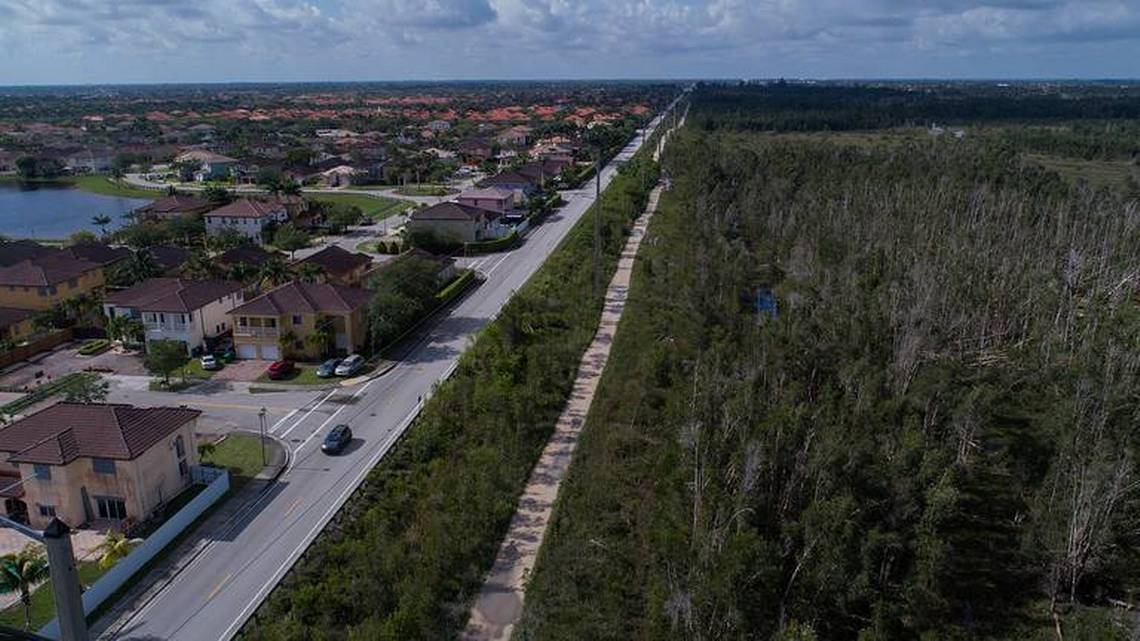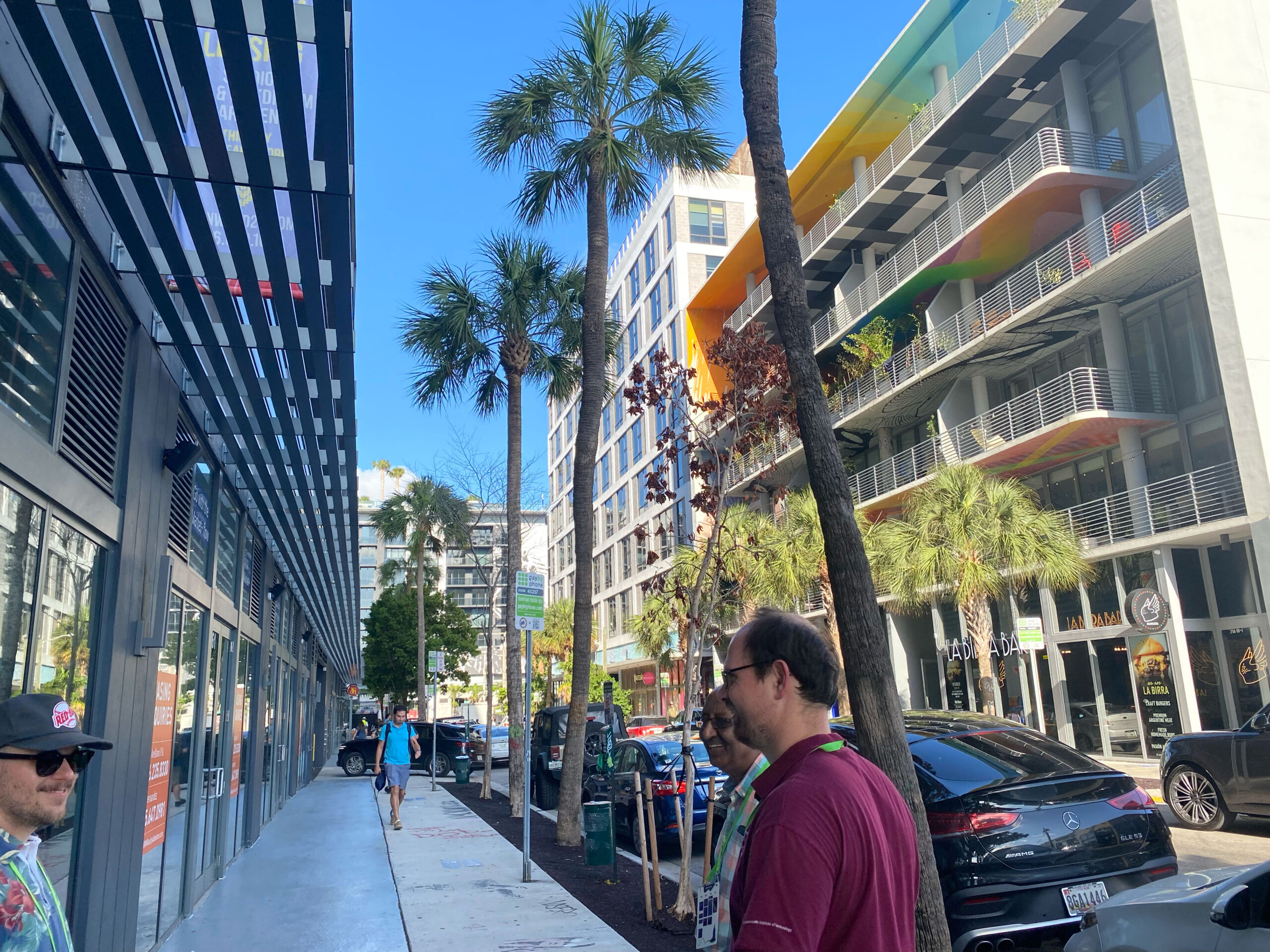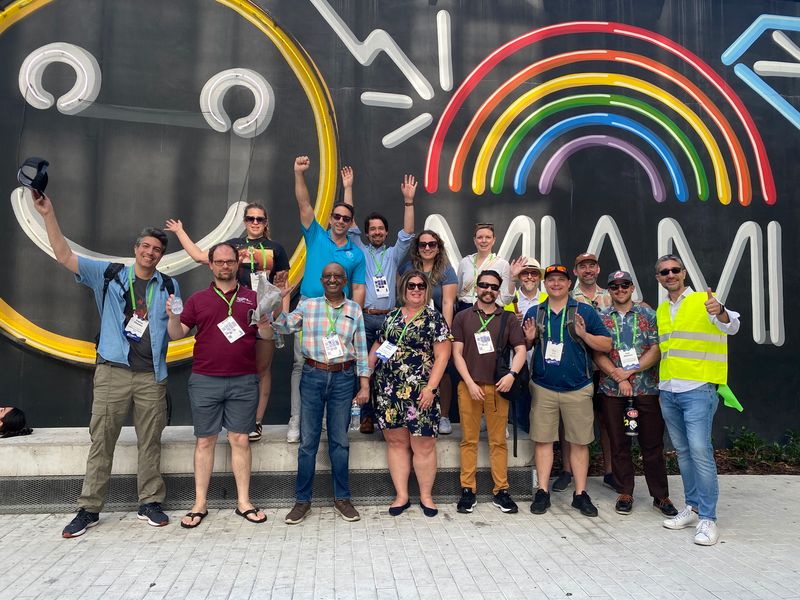
A southbound view of Southwest 157th Avenue running next to the Bird Basin Park, the proposed route of the 836 State Road extension in Miami-Dade County. PEDRO PORTAL PPORTAL@MIAMIHERALD.COM
The recent court ruling against the proposed State Road R836 Tollway extension into the Everglades should be the death knell for this ill-conceived waste of taxpayer and toll payer money. The judge ruled, based on evidence and testimony taken over an eight-day trial, that the project would do more harm than good.
We believe that Miami-Dade County and the Miami-Dade Expressway Authority should accept the ruling and move on.
For years, MDX claimed that the tollway extension was the answer to traffic congestion in West Kendall. It insisted the extension would ease congestion while protecting environmental resources. But Suzanne Van Wyck, an administrative law judge for Florida, found both claims to be false. She ruled that the extension would provide only “meager” congestion relief. She found “no support” for the claim that the new tollway would improve “the commute time to downtown and other employment centers.” The judge also found that, worse, extending the tollway would exacerbate congestion on existing SR 836. She wrote, “Commuters will drive 13 miles, outside of the [urban development boundary], through active agricultural lands, through environmentally-sensitive lands, and through the West Wellfield, only to connect with the existing expressway operating at [a level of service] lower than it operates at today.”
While County Mayor Carlos Gimenez and MDX have extolled express bus service to be included on the extension, Van Wyck found no evidence that such facilities would actually be used. She found the Tollway would not, as the county’s land-use plan requires, “shift the travel mode” in that part of the county “from single occupancy vehicle to mass transit.”
She also found that, contrary to MDX’s claims, the agencies responsible for the Comprehensive Everglades Restoration projects to which the Tollway poses an enormous threat, had not approved the Tollway. Each of those agencies — the Florida Department of Environmental Protection, the South Florida Water Management District and the U.S. Department of the Interior — have actually raised major concerns about building a highway through sensitive Everglades wetlands. The federal Environmental Protection Agency has said that the Tollway would pose substantial and unacceptable adverse secondary impacts on the Greater Everglades. Van Wyck ruled the county’s decision to approve the Tollway without these agencies’ approval violated the law.
She also found that the Tollway extension would destroy wetlands critical to threatened or endangered species and conflict with the county’s policy to protect and enhance areas that recharge the West Wellfield. She specifically held that the extension “creates a risk of contamination to the [county’s drinking water] wellfields.” Based on the judge’s rulings, it is impossible to see how the federal and state wetland and endangered species permits this project would require could ever be legally obtained.
Trials have a way of sifting spin from fact. The county and MDX were granted every opportunity to put on their strongest case in support of the extension. The trial proved that the extension’s claimed benefits are illusory while its environmental harms are real and unavoidable.
There is hope. During the hearing,
evidence was presented by urban planner Juan Mullerat of PlusUrbia regarding the feasibility of mass-transit solutions using rights-of-way on Southwest 137 Avenue to connect segments of the county’s SMART plan. While no silver bullet exists, and the wisest approach is a zealous and fully funded implementation of the SMART Plan, smaller, less ambitious, but collectively meaningful transit and road and signalization improvements could, in the meantime, provide initial congestion relief.
It is time for MDX, which already has squandered more than $7 million on consultants to plan this ill-advised attempt to meet modern transportation needs with another car-oriented highway, to pull the plug on the project. The Miami–Dade County Commission should do the same by repealing the comprehensive-plan changes that have now been found to violate the law. We call upon the County Commission and the MDX Governing Board to withdraw all applications seeking approval for the SR 836 Tollway Extension, to cease all planning for the expansion and to declare the proposal explored, rejected and withdrawn.
Philip Kushlan is president of Friends of the Everglades. Victor Dover is a fellow of the American Institute of Certified Planners. Click here to read or listen to the full article online.





